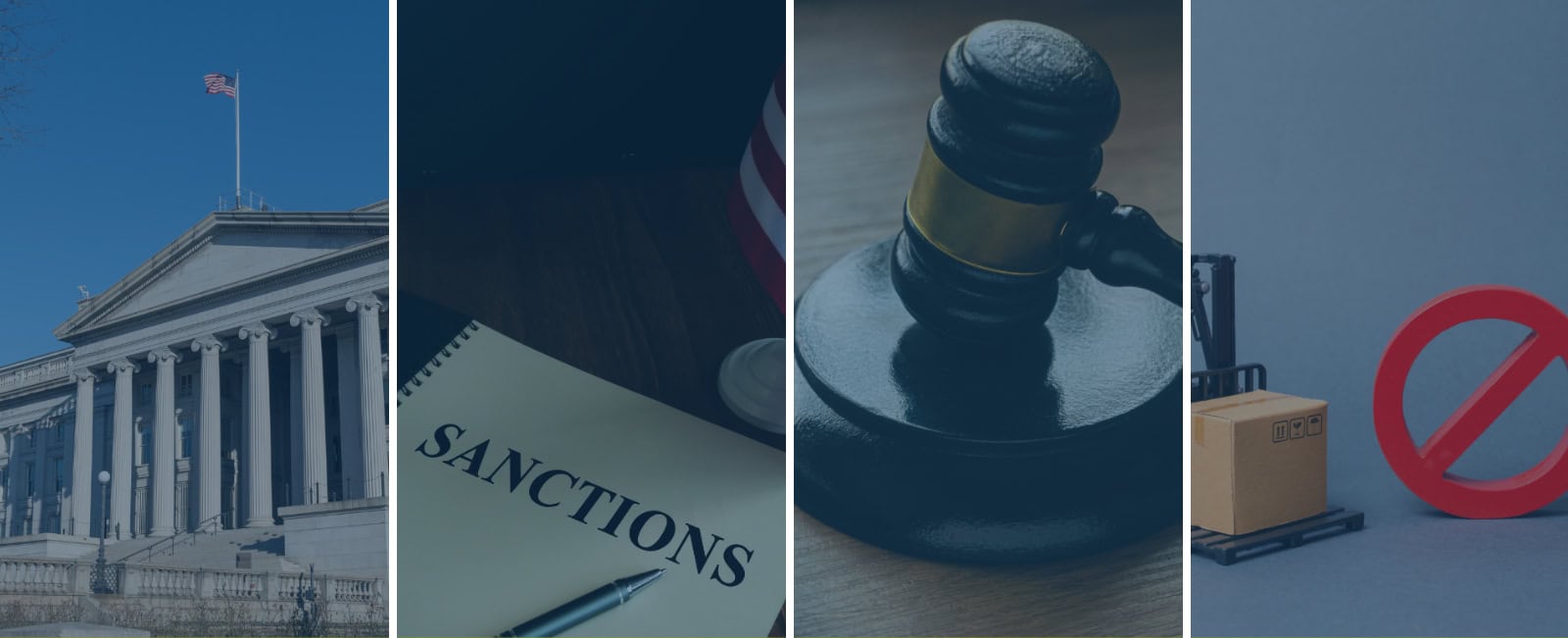IMPORTS & EXPORTS
ADDITION OF SOFTWARE SPECIALLY DESIGNED TO AUTOMATE THE ANALYSIS OF GEOSPATIAL IMAGERY TO THE EXPORT CONTROL CLASSIFICATION NUMBER 0Y521 SERIES
The Bureau of Industry and Security (BIS) of the U.S. Commerce Department released for publication in the Federal Register an interim final rule (along with a request for comments) to amend the Export Administration Regulations (EAR) to make certain software specially designed to automate the analysis of geospatial imagery as specified, under the Export Control Classification Number (ECCN) 0Y521 series, specifically under ECCN 0D521, subject to the EAR and to impose a license requirement for the export and reexport of this software to all destinations, except Canada
REVISIONS TO CATEGORIES I, II, III OF THE U.S. MUNITIONS LIST
- Final rule from the U.S. State Department amends the International Traffic in Arms Regulations (ITAR) to revise Category I firearms, close assault weapons and combat shotguns, Category II guns and armament, and Category III ammunition/ordnance of the USML. The final rule is intended to describe more precisely the articles that provide a critical military or intelligence advantage or, in the case of weapons, perform an inherently military function and thus warrant export and temporary import control on the USML. These revisions complete the initial review of the USML that the State Department began in 2011. Items not subject to the ITAR or to the exclusive licensing jurisdiction of any other set of regulations are subject to the Export Administration Regulations.
- The second final rule [PDF 1.3 MB] (242 pages) from the Bureau of Industry and Security (U.S. Commerce Department) similarly concerns revisions to Categories I, II, and III of the USML and is being published simultaneously with the final rule from the State Department. These final rules are scheduled to be published in the Federal Register on January 23, 2020.
SENATE PASSES USMCA IMPLEMENTING LEGISLATION
The U.S. Senate today, by a vote of 89 to 10, passed legislation to implement the agreement of the United States, Mexico, and Canada (USMCA)—the agreement that would replace the North American Free Trade Agreement (NAFTA).
The U.S. House of Representatives passed the USMCA implementing legislation on December 19, 2019. The bill will now be sent to the White House for action by the president.
U.S. CHINA TRADE AGREEMENT
The Office of the U.S. Trade Representative (USTR) released text and other information about the trade agreement signed by representatives of the United States and China.
The fact sheets address the following topics:
Phase One agreement, Intellectual property, Technology transfer, Agriculture and seafood-related provisions (short), Agriculture and seafood-related provisions (long), Agricultural biotechnology, Animal feed, Seafood, Dairy and infant formula, Horticultural , products, Meat, poultry, and live breeding cattle, Pet food, Rice, Financial services, Macroeconomic policies and exchange rate, Expanding trade.
INTERNATIONAL TRADE COMMISSION DETERMINATIONS:
Imported Dried Cherries from Turkey
U.S. industry is not materially injured or threatened with material injury by reason of imports of dried tart cherries from Turkey (imports that the U.S. Department of Commerce determined are subsidized and sold in the United States at less than fair value). As a result of the ITC’s “negative determinations,” no antidumping and countervailing duty orders will be issued.
Carbon and alloy steel-threaded rod imported from Taiwan
U.S. industry is materially injured by reason of imports of carbon and alloy steel-threaded rod from Taiwan that the U.S. Commerce Department determined are sold in the United States at less than fair value.With the ITC’s “affirmative determinations,” Commerce will issue an antidumping duty order on imports of carbon and alloy steel-threaded rod from Taiwan.
SEVENTH EDITION OF THE HARMONIZED SYSTEM (HS)
The World Customs Organization has announced that all the Contracting Parties to the Harmonized System Convention has accepted HS 2022, the seventh edition of the Harmonized System (HS) nomenclature used for the uniform classification of goods traded internationally all over the world. The HS serves as the basis for Customs tariffs and for the compilation of international trade statistics in 211 economies. The new HS2022 edition makes some major changes to the Harmonized System with a total of 351 sets of amendments covering a wide range of goods moving across borders. Among the changes are the following:
- Unmanned aerial vehicles (UAVs), commonly referred to as drones,
- Electrical and electronic waste, commonly referred to as e-waste, is one example of a product class that presents significant policy concerns as well as a high value of trade, hence HS 2022 includes specific provisions for its classification to assist countries in their work under the Basel Convention.
- New provisions for novel tobacco and nicotine-based products resulted from the difficulties of the classification of these products, lack of visibility in trade statistics and the very high monetary value of this trade.
- Smartphones will gain their own subheading and Note, which will also clarify and confirm the current heading classification of these multifunctional devices.
- Major reconfigurations have been undertaken for the subheadings of heading 70.19 for glass fibers and articles thereof and for heading 84.62 for metal forming machinery. These changes recognize that the current subheadings do not adequately represent the technological advances in these sectors, leaving a lack of trade statistics important to the industries and potential classification difficulties.


